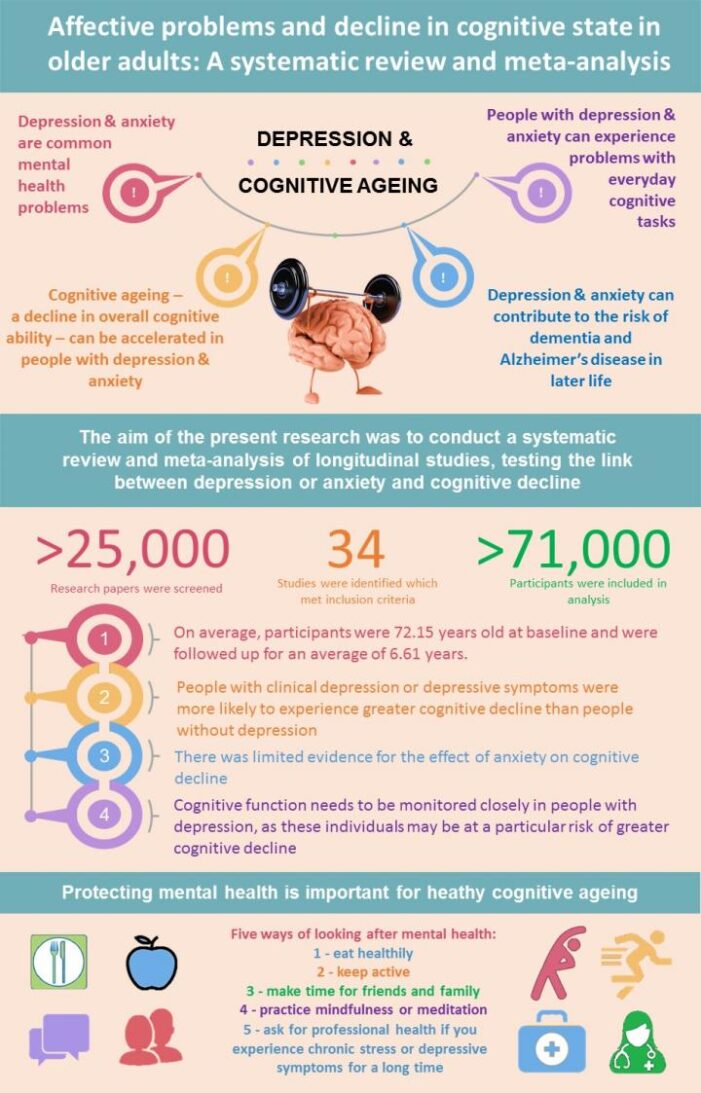Amid increasing instances of depression among the celebrities, common people and even teenagers, psychologists at the University of Sussex have come up with a new dimension to the alarming mental health issue saying the brain ages faster when people undergo frequent depression.
Depression is the leading cause of mental ill health across the world with more than 300 million people suffering from it with an estimated increase of more than 18% between 2005 and 2015, according to World Health Organization (WHO).
Earlier studies found that people with depression or anxiety have an increased risk of dementia in later life, leading to decline in overall cognitive function. The new study extrapolates it to showcase a direct link with early old age as well. Dementia is expected to grow substantially over the next 30 years.
After a review of 34 longitudinal studies, with data available from 71,000 participants, the study measured the rate of decline of overall cognitive state resulting in memory loss, poor decision making and slow information processing in older adults. It has excluded dementia as past studies have already established its link with old age.
The study found that people with depression faced imminent and greater decline in cognitive functions inold age than those without depression.
Lead researchers Darya Gaysina and Amber John from the EDGE Lab at the University of Sussex have stressed on dealing with depression effectively since the implications at a later stage may prove irreversible.
“This study is of great importance – our populations are ageing at a rapid rate and the number of people living with decreasing cognitive abilities,” said Gaysina.
Amber John, who carried out this research for her PhD at the University of Sussex adds: “People living with depression shouldn’t despair – it’s not inevitable that you will see a greater decline in cognitive abilities and taking preventative measures.”
Some of the preventive measures she suggested include regular exercising, practicing mindfulness and undertaking recommended therapeutic treatments, such as Cognitive Behaviour Therapy.
The study was published in the journal Psychological Medicine.
What WHO says on Depression?
Depression is different from usual mood fluctuations and short-lived emotional responses to daily life-style challenges. It reflects in symptoms ranging from depressed mood, loss of interest and enjoyment, and reduced energy levels for at least two weeks.
Some of them may even experience anxiety, disturbed sleep and loss of appetite, feelings of guilt or low self-esteem, poor concentration and even medically unexplained symptoms.
At its worst, depression can lead to suicide. Close to 800,000 people die due to suicide every year. Suicide is the second leading cause of death among youngsters between 15 and 29 years of age. Seeking early medical intervention is a must in such cases.

